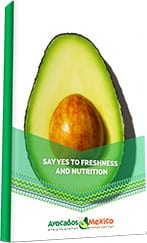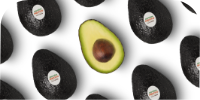
Entertaining
Holidays Around the World
Halloween, Día de Muertos, Thanksgiving, Christmas, and New Year’s Eve dominate the festivity calendar for the last three months of the year. But they’re not the only celebrations taking place during the fall and winter. Let’s have a look at what other celebrations and festivities take place in October, November, and December around the world.
China
Celebrates the Chongyang, or Double Ninth Festival, which is held on the ninth day of the ninth lunar calendar month, usually October. The number nine sounds like yang(masculine), and chong means double, hence Chongyang. People eat Chonyang cake (a steamed, layered cake) and drink chrysanthemum wine, which is believed to drive evil away, and go hiking and climbing. It is also Senior Citizens’ Day, so families honor their elders, too.
Canadians
Celebrate Thanksgiving on the second Monday in October. Early settlers and explorers held feasts of thanks, sometimes with their First Nations neighbors, for good harvests, safe sea passages, or the end of wars. The first recorded Thanksgiving took place in 1578, when the Arctic expedition led by explorer Martin Frobisher survived very harsh weather conditions. Families get together for a meal of roast turkey, mashed potatoes with gravy, stuffing, winter vegetables, and pumpkin pie. Later, they go for walks in the woods and watch football.
“Remember, remember, the fifth of November, Gunpowder treason and plot….” goes the famous rhyme that people in the United Kingdom recite every November 5. The date commemorates the failed Gunpowder Plot of the 17th century, when a group of Catholics tried to blow up Parliament. Guy Fawkes, an explosives expert, became the most famous conspirator.
Guy Fawkes Day
Is tradionally celebrated with parades, fireworks, and bonfires on which Guy Fawkes effigies are set alight. Children parade around homemade effigies while chanting, “A penny for the guy!”
Every year, at 11 a.m. on November 11, people in the U.K. and the Commonwealth observe two minutes of silence on Remembrance Day to pay their respects to soldiers fallen in the line of duty. The time and date reflect those of the signing of the World War I Armistice, which marked the formal end of hostilities in 1918. There are religious services, authorities lay poppy wreaths at cenotaphs, and people wear poppy pins on their lapels. This lovely custom was inspired by the poem “In Flanders Fields,” whose first line reads, “In Flanders fields the poppies blow.” In the U.K., official ceremonies usually take place on Remembrance Sunday, the Sunday immediately after or before November 11.
Sinterklaas
In the Netherlands, children can’t wait for December 5 because this is when Sinterklaas and his companion Zwarte Piet bring them presents. The festivities begin in November, when Sinterklaas arrives — supposedly from Spain — in a steamboat and throws candy and small cookies into the expectant crowds that gather to welcome them. Then, on the night of December 5, children fill their shoes with carrots and sugar cubes, beer for Zwarte Piet, and a cup of coffee for Sinterklaas. Then, presents “magically” appear overnight for kids. Can you imagine the excitement?
December brings a few religious holidays. Among them is Hanukah, the Jewish commemoration of the rededication of the Holy Temple in Jerusalem and the miracle of the temple’s Menorah, which stayed alight for eight nights with a seemingly insufficient quantity of oil. Therefore, Hanukah is observed for eight nights. Each night, celebrants light a candle of the menorah (a special candelabrum) while they sing special songs and recite prayers and blessings. It is customary to eat fried foods, like latkes, sufganiyot (donuts), or fritters, as well as dairy products. Children play with the dreidel, a four-sided spinning top. In the United States and Israel, children also get presents and Hanukah gelt (money), either in the form of chocolate coins or hard currency.
Boxing Day
Has nothing to do with the sport of boxing and everything to do with the Victorian custom by which servants received a Christmas box of money or presents on December 26. The day after Christmas is a holiday observed in the United Kingdom and Commonwealth nations, as well as a day for shopping, as many retailers run sales. Some people prefer to spend the day relaxing at home watching sports on TV: soccer in the U.K., cricket in New Zealand, Australia, and South Africa, a yacht race in Australia, or ice hockey in Canada.
We live in an incredibly diverse world. Let’s celebrate all cultures and enjoy festivities, whether in person or vicariously through social media!
AVO TIP: Are you hosting a holiday party? Don’t stress about snacks! Chef Pati Jinich has you covered. Learn how to make a variety of delicious quick snacks with Avocados from Mexico in this video.
Want even more avocado info?
Provide your email address to download a free recipe e-book.As promised here is your FREE RECIPE e-BOOK Download Recipe E-book

























